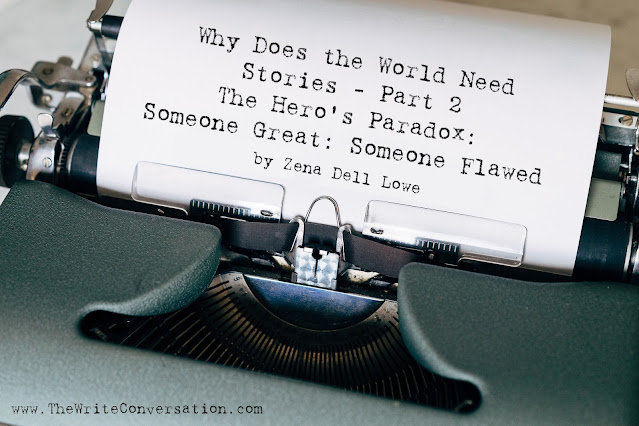by Kathleen Neely @NeelyKneely3628
Thursday, September 30, 2021
Is NaNoWriMo Right for You?
by Kathleen Neely @NeelyKneely3628
Tuesday, September 28, 2021
Dipping the Quill Deeper: Figuring Out the Days of Our Lives
Like sands through the hourglass . . . so are the days of our lives.
Do you remember those words? If you grew up in a certain era and your mother was a homemaker, you probably do. They were spoken at the beginning of the daytime soap opera, Days of Our Lives, by actor Macdonald Carey. They quoted Socrates who said, “Our lives are but specks of dust falling through the fingers of time. Like sands of the hourglass, so are the days of our lives.”
Monday, September 27, 2021
The Importance of A Name for Your Novel's Characters
by Ane Mulligan @AneMulligan
I spend a lot of time on my characters’ interviews, getting to know them well before I start writing. That way, the name I choose for them—like that friend you've known for years and couldn't imagine their name as anything else—sticks.
But it hasn't always been this way.
Sunday, September 26, 2021
Learn What You Don't Know and Write That!
by Craig von Buseck @CraigVonBuseck
Saturday, September 25, 2021
WHY DOES THE WORLD NEED STORIES - PART 2
Friday, September 24, 2021
1,061 Reasons Not to Quit Writing
by Lori Hatcher @LoriHatcher2
Thursday, September 23, 2021
For Writers: Finding the Right Word, Part 1
by Henry McLaughlin @RiverBendSagas
Wednesday, September 22, 2021
Could Binge-Writing be Right for Me?
by DiAnn Mills @DiAnnMills
Are you a candidate for binge-writing? Does the thought of adding thousands of words to your manuscript thrill you from head to toe? Maybe you have no clue what binge-writing means or how it could help you move forward with your dreams and goals.
Tuesday, September 21, 2021
How to Write a Blessing
by Lucinda Secrest McDowell @LucindaSMcDowel
Monday, September 20, 2021
How to Connect Your Marketing to Special Dates
by Karen Whiting @KarenHWhiting
Sunday, September 19, 2021
Let’s Write to Change the World
by Tammy Karasek @TickledPinkTam
Saturday, September 18, 2021
What to Do if You're a Perfectionist Writer
by Emme Gannon @GannonEmme
I don’t know if there exists a Perfectionist Anonymous, but if one did exist, I would slink into one of the meetings, hide in the last row and when I couldn’t put off the inevitable, stand up and confess in a soft shy voice, “My name is Emme and I’m a perfectionist.”
My computer files have more than a few works in progress as well as a completed novel and another one that is taking way too long to complete. Some agents have actually dangled the hope of publishing my novel at me, but then pulled back with the words we all hate to hear, “It’s not quite ready yet.” Instead of hope, those words to a perfectionist tell us, “Why did you ever think you could do this? Just give up and save yourself more embarrassment.”
Friday, September 17, 2021
How to Be Sensitive to Your Readers
Thursday, September 16, 2021
How to Start Speaking and Find Speaking Engagements
Susan U. Neal RN, MBA, MHS @SusanNealYoga
Wednesday, September 15, 2021
The Heartbeat of a Good Writer
by Katy Kauffman @KatyKauffman28
Tuesday, September 14, 2021
How Will Mental Rest Help Me Find Writing Clarity?
Monday, September 13, 2021
How to Keep Technology from Interfering with Your Writing & Speaking Life
by Yvonne Ortega @YvonneOrtega1
Sunday, September 12, 2021
Knowing the Why
by Martin Wiles @LinesFromGod
Saturday, September 11, 2021
Find Joy in Your Writing by Remembering to Write in Faith
by Edie Melson @EdieMelson
Friday, September 10, 2021
Write a Powerful Testimony Using These 5 Elements
by Joshua J. Masters @JoshuaJMasters
Thursday, September 9, 2021
Perseverance For Writers: Finding the Write One When the Others Won’t Work
by Julie Lavender @JLavenderWrites
Wednesday, September 8, 2021
Collaboration: Tips for Writing with Someone Else—Publishing as a Second Language, Part 1
by Linda Gilden @LindaGilden
Tuesday, September 7, 2021
The Three Essentials Of Writing Non-Fiction
by PeggySue Wells @PeggySueWells
- A character the audience cares about
- The character’s great and seemingly impossible-to-achieve need
- An insurmountable obstacle between the character we care about and the great need the character must achieve
- A character the audience cares about is the audience. Your reader is the character we care about in a non-fiction project.
- The character’s great and seemingly impossible-to-achieve need is for the reader to become the person the reader longs to be.
- An insurmountable obstacle between the character we care about and the great need the character must achieve are the challenges, problems, and road blocks that the non-fiction book addresses.
Monday, September 6, 2021
How Do I Define Writing Success in a Comparison Driven World?
by Kristin Hogrefe Parnell @khogrefeparnell
Are you a writing success? If you’ve ever been asked that question, you know there are dozens of ways to answer it. All of them depend on a definition of success that is a moving target at best and a comparison trap at worst.
Sunday, September 5, 2021
So Many Words
by Audrey Frank @AudreyCFrank
Saturday, September 4, 2021
What to Do When Writing is Hard—Conquering the Writer's Mountain
by Tim Suddeth @TimSuddeth
Friday, September 3, 2021
How do You Start Writing Your Story in the Right Place?
by A.C. Williams @ACW_Author
Thursday, September 2, 2021
Why Starting Can Be Hard for Writers
by Lynn H. Blackburn @LynnHBlackburn
Wednesday, September 1, 2021
Four Ways to Take Your Characters from Cardboard to Real
by Sarah Sally Hamer @SarahSallyHamer
































